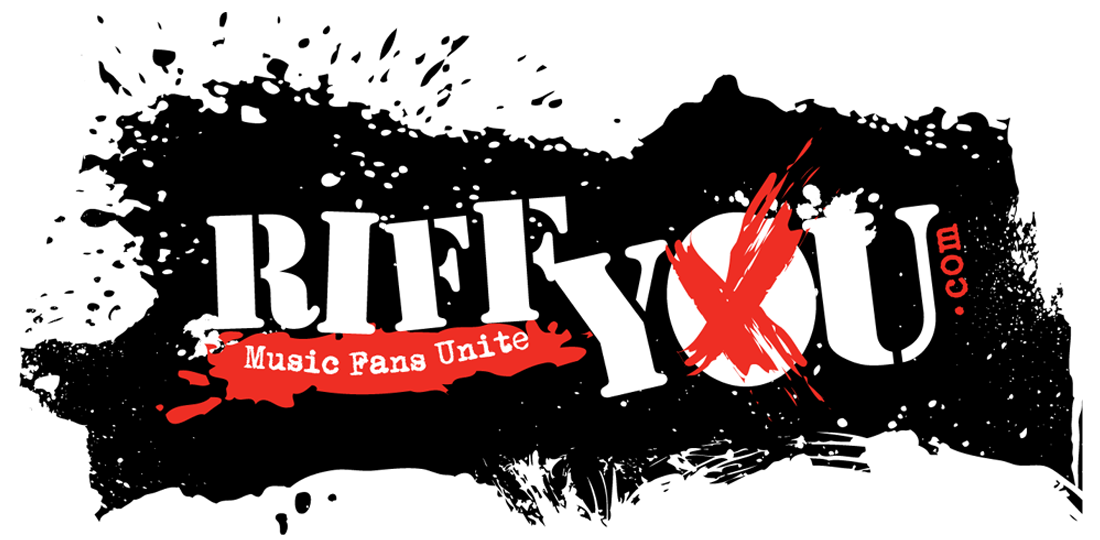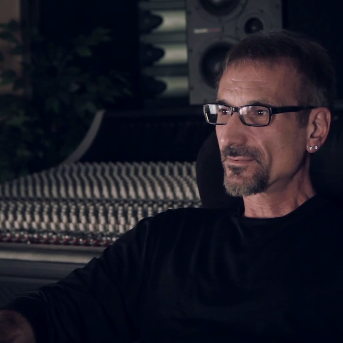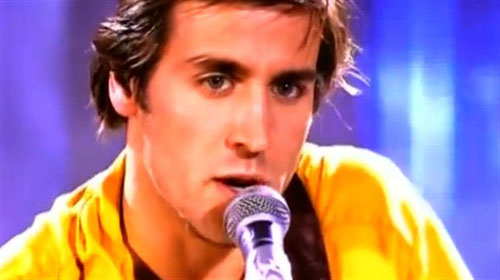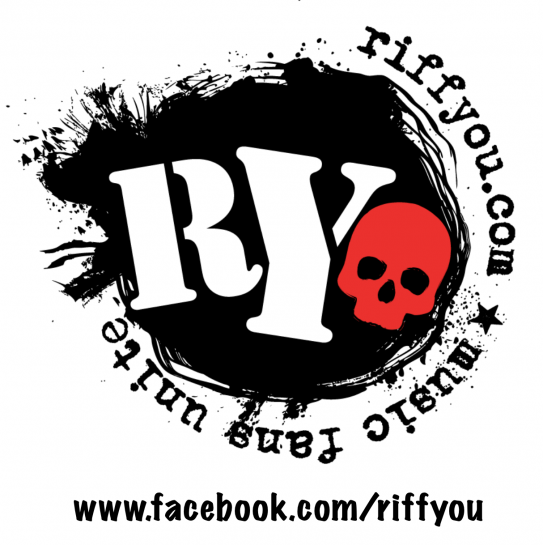OLP Album “Naveed” Turns 20: Producer Arnold Lanni Reflects
Saturday, March 22 marked the 20th anniversary of arguably one of Canada’s foremost rock albums: Naveed by Our 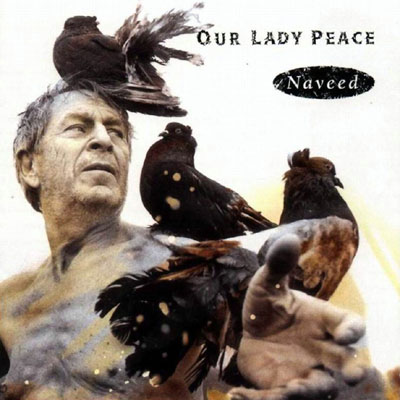 Lady Peace. Featuring the gigantic singles “Naveed” and “Starseed,” not to mention “The Birdman,” “Hope,” and “Julia,” this album is a beast that continues to resonate incredibly well on the radio; within concert venues; and through speakers we all have in our homes.
Lady Peace. Featuring the gigantic singles “Naveed” and “Starseed,” not to mention “The Birdman,” “Hope,” and “Julia,” this album is a beast that continues to resonate incredibly well on the radio; within concert venues; and through speakers we all have in our homes.
Featuring the original lineup of Raine Maida (lead vocals, guitar), Mike Turner (guitar, vocals), Chris Eacrett (bass), and Jeremy Taggart (drums), Our Lady Peace came out of nowhere in 1994, only to soon become one of Canada’s most popular, successful – even sometimes most hated – rock collectives. Regardless of which side of the fence you sit, one thing is for certain: Naveed is timeless.
Behind the scenes, but very much involved in bringing Our Lady Peace and Naveed to life, was highly-respected musician, producer, and songwriter Arnold Lanni. He not only played a big part in getting the band off the ground, but he also helped them sculpt a unique sound that would soon be heard on their first four studio albums.
On Sunday evening, Riffyou.com held a lengthy, late night conversation with Lanni, much of which was focused on how Naveed and Our Lady Peace came to be.
RY: What do you remember the most about the Naveed era?
Arnold: “That was an incredible time because, for me, this was the thing I was going to branch out into. Prior to that album, I was still playing with bands – this was a transitional moment of my life. I remember having two children at the time; I just took my band off of the road; and I remember telling my wife that it was going to be crazy for the next little while…I was going to literally, live and breathe in the studio. I remember saying, ‘I found these young kids, and I think this is going to be unbelievable, but it’s going to take a lot of patience.’
“What I remember is the newness – everything that we did. How we tried to arranged those songs… everything was against the grain. Everything we did was to try to be different than what had happened up to that point. It started with Raine sounding so different. The neat thing with Raine, is I’d say, ‘Raine, can we make some funny noises?’ And he was so into it. He was just so good at animating his voice that we knew [people] were either going to love it, or hate it. That seems like a simple thing to do and say, but when you’re the singer of a band and someone says ‘they’re either going to love or hate it,’ there’s a natural reaction to think that you want everyone to love it. But, he was brave. I really admired him for that.
“In the beginning, we didn’t know we were going to be successful. We just thought, ‘hell, if we get to make another record, we’ll be happy.’”
RY: Was Our Lady Peace a functioning band before you connected with them?
Arnold: “No. They didn’t even have a drummer. We auditioned Jeremy halfway through the demo process. Basically, it was Raine, Mike, the original bassist Chris, and they had another drummer that bailed before we recorded a note. It’s not like they were a band gigging around town.
“I’m probably going to remember this the wrong way, but my best recollection is that they heard me speaking at a
seminar, and they approached me. They said ‘we like what you had to say, we’re in the garage…” I ran into Raine at another function afterward – which I later learned was planned on his part, but I thought was an accident – and I ended up going to their rehearsal in a garage. The very first night they played what they had, I said ‘this is interesting stuff guys, but here’s what I would do.’ I gave them ideas about what I’d do with the songs. They liked them, and it just went from there. Next thing you know, we’re doing demos together.”
RY: Obviously, the body of work on that album received and receive lots of airplay and presence in the band’s concerts. But before all of that, how did you see the band evolve from the beginning of the Naveed sessions, to the end of them?
Arnold: “They were veracious learners – especially Raine. He was hungry to succeed. He wanted to learn how to write better songs; he wanted to learn how to play the guitar. When we worked on that first record, we just wanted to try and get 10 songs together. It was really, really, experimental, because it’s not like we had a lot to work with. It was brand new stuff. They were literally learning about their instruments as we were in the studio…I mean, they’d never made a record. I’d say, ‘okay guys, we’re going to do X, Y, and Z,’ and they didn’t know how to do that. I had to literally show them what to do, and they were great students, because they so wanted to learn. They worked really, really hard – they really did. They weren’t the typical snot-nosed kids that expected anything. They just wanted an opportunity.
“I can’t say enough how proud I am of guys like Raine, because a lot of it was his vision. He would say, ‘I want to be as unique as we can. I want to sing about this…’ He might not have known how to do it at that time, but he had the inclination to do it. That’s the important part. To have the bravery and courage to do it – that’s more important because I can teach you how to do this and that, but I can’t give you balls. They had the courage of their convictions. They knew what they wanted to do, and they went after it.”
RY: When Naveed did finally come together, why do you think it resonated so well with people?
Arnold: “I think a lot of it is…the songs are delivered in a more unique way. But, they’re just great songs. We wrote great songs. But, we didn’t deliver them in the way that other bands at the time were delivering them. The structure was a little bit different; the subject matter was a little bit different. In terms of the delivery, the ultimate thing was the way that Raine sang. He didn’t sound like everybody else.
“When people hear something, they want to hear something slightly familiar…just familiar enough so that they realize ‘I know what I’m getting,’ but unique enough that they can feel like they’re discovering it for the first time. That’s the balance. Otherwise, it’s just derivative.”
RY: I’ve read and heard for some time that you were considered a fifth member of Our Lady Peace, in the same kind of way that Daniel Lanois would be considered the fifth member of U2. Did, or do you see it that way?
“Yeah. I remember the guys would call me the grand dad or father of the band. To me, that’s a compliment. After the fact, Raine did an interview with MuchMusic and that was kind of what he said…that I was the fifth member. I rolled up my sleeves and was involved. I didn’t want more power [during the process], but I just didn’t want less. I wanted equal say at the table. So, if we were voting on where a song should go, I had an equal vote. Because of that, I could at least – with some discretion – influence the band in ways that I couldn’t have, had I not had an equal vote.
“If I didn’t like a part, instead of having to say ‘guys, can you go away and make this better?’ I had the ability of picking up the guitar, playing something, and saying ‘how about something like this?’ That, to me, was important. It gave me the latitude to be creative as well. That’s why I think the record sounded so good – because there were more heads, and more creativity working together.”
RY: When did you realize that Our Lady Peace could be a force?
Arnold: “When we first started out, honestly, we figured that if we sold 20,000 albums, Sony might allow us to make another record. Honest to God, that’s what we thought. I knew that we were making a really great record, but I just didn’t think it would be [overly] successful because it was too unique. Obviously I miscalculated because it went on to sell hundreds of thousands of copies.”
RY: Although Naveed had a bunch of singles that did well, I believe that the songs “Naveed” and “Starseed” are the most popular tracks from the album. Which is the better of the two songs?
Arnold: “Oh gosh,” laughs. “That’s like saying what’s more important: your pinky finger, or your thumb. I don’t know. That’s a great question. I never pondered it. I know when ‘Starseed’ came out, people had never heard a song like that in
terms of the arrangement and what it sounded like. But, I also know that when they heard ‘Naveed,’ they thought that it had so much depth that it had a weight to it. Don’t ask me to choose, I don’t know,” laughs.
RY: This question’s similar in nature, but should be a little easier for you. Which song off of Naveed is the most underrated?
Arnold: “The song ‘Is it Safe?’ I love that song. I’ve always wanted to remake that one. I thought Raine sang it great; I thought the song had such an interesting delivery; it was never picked as a single; and I don’t know if many people know the song. But that song could come out today and compete.”
RY: Do you think that in another 20 years from now Naveed will continue to be looked at as one of the great rock records to ever come out of Canada?
Arnold: “This may sound a little bit disingenuous of me to say it, but I think it’s a hugely important record for Canadian music. It launched music in a certain direction. We did things in a way that was unique. Melodically and lyrically, the album’s never going to get old. I am so proud of that record. When I hear it on the radio today, it still holds up to me. It’s timeless. It doesn’t sound like anybody, or anything – it sounds like us.”
-Adam Grant
Stay tuned for a candid interview with Anrold Lanni on the state of the music industry; the art of songwriting and production; as well as what a band needs to make a real impression.
Please be sure to follow us on Twitter @riffyou and at Facebook.com/riffyou.
